Ripon Hornblowers' keeping ancient traditions alive from their own home gardens
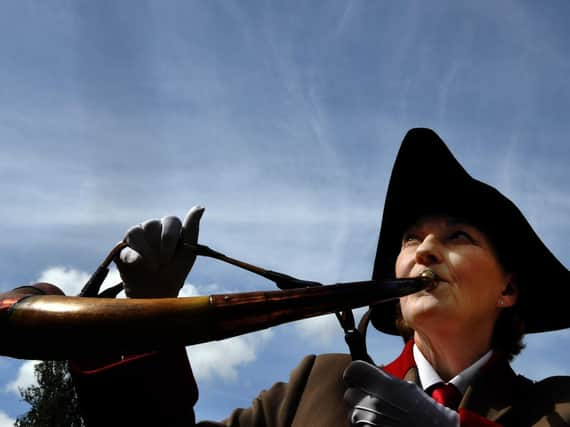

Now this hallowed ceremony, having endured through two world wars and a royal intervention, has once again persisted through a tumultuoustime in its history.
The city's hornblowers have been carrying the watch's call from their own gardens, rather than the four corners of the market cross, to ensure the ritual survives.
Advertisement
Hide AdAdvertisement
Hide AdThere is no tradition more ingrained here than the sounding of the horn, they said, so long as it comes from within the city bounds.
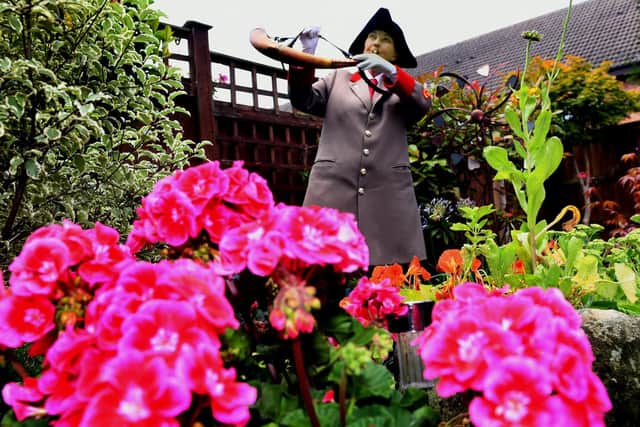

"It's always been done, as far back as living memory, and it is living history," said Allison Clark, one of three hornblowers charged with carrying this symbol of the city.
"The hornblower has always set the watch. There is a sense of security, that it carries on regardless."
The hornblowers' custom dates back to 886, when Ripon's first citizen was appointed to keep the city safe from Viking invasion in the Middle Ages.
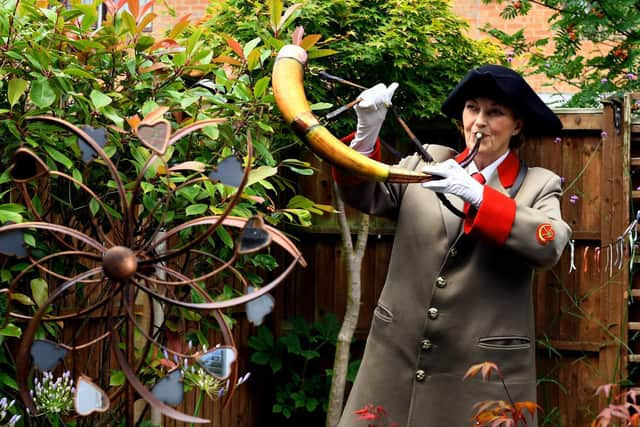

Advertisement
Hide AdAdvertisement
Hide AdThe wakeman, as he was known, was not allowed to dwell outside the city limits unless there was a pestilence, and any abuse with "slanderous" words was punishable to time in the stocks.
Patrolling with his deputies, the wakeman was charged with blowing a horn every night at 9pm at the four corners of the market cross to signal the start of his watch.
There is no known time that it has been missed, although in the Second World War it was moved to an earlier hour of 6pm to avoid the regular blackouts.
Once the watch is set the hornblowers must make their way to the Mayor's abode, doffing their tricord hat to shout "Mr Mayor, the watch is set!"
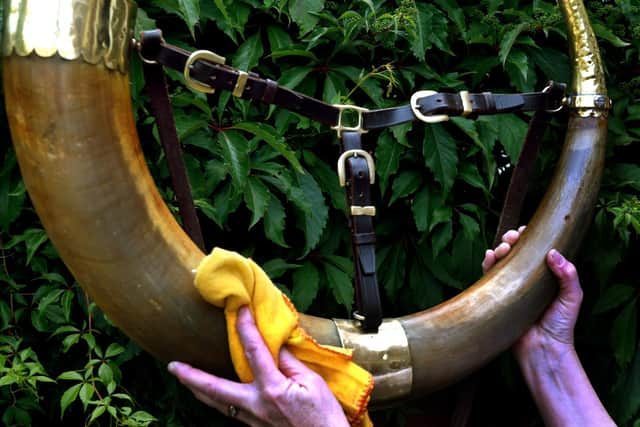

Advertisement
Hide AdAdvertisement
Hide Ad"There's been times when it's been done by the skin of its teeth, but as long as it's before midnight it's alright," said Mrs Clark.
"We've had the opposite problem more often, where two of us turn up."
Challenges under lockdown
The horn blowing has become a tourist draw in its own right, attracting international visitors to witness a ceremony that has been in existence since before Australia was discovered.
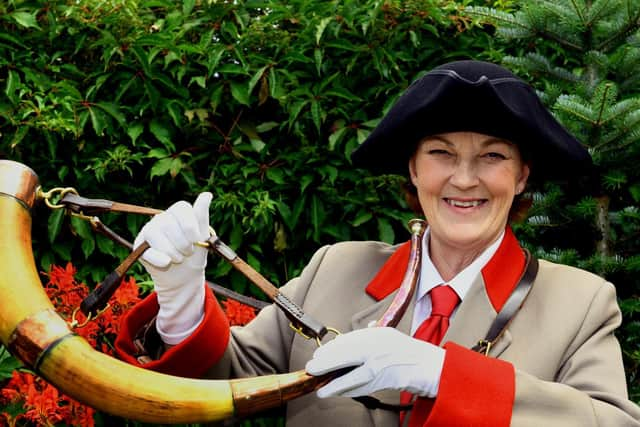

Under lockdown, the watch setting has once again been moved, to the hornblowers' own back gardens, and broadcast over the internet as it happens for all to witness.
Advertisement
Hide AdAdvertisement
Hide AdThere have been challenges, with Wi-fi pitfalls for live broadcasts and lighting as early March nights drew in, but for over 130 days the tradition has carried on.
The digital record shows an extraordinary passing of time as the seasons change, said Mrs Clark, and while the tradition in public is missed, it will one day return.
Ripon City Council is following Buckingham Palace as a guide, she said, as to when it begins to reinstate its official ceremonial duties which can often draw a crowd.
"The important thing for the city is that the tradition endures," she said. "It means a lot to the city and, for the people of Ripon. They can rely on it, they can set their watch by it.
Advertisement
Hide AdAdvertisement
Hide Ad"We're really proud that we've kept it going, that we have adapted and moved with the times. This history, and these traditions, do give people a sense of pride."
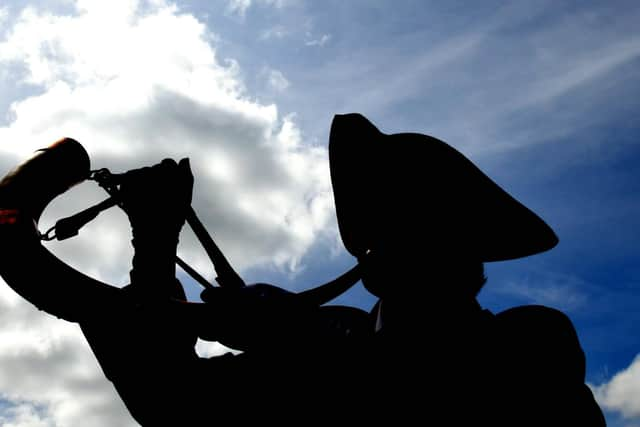

History of the hornblower
The first hornblower was appointed in 1604 when Ripon received its first royal charter from James l, and the official wakeman was instead made Mayor.
There are now three, Richard Midgley, Wayne Cobbett, and Mrs Clark, after Jim Vauvert retired in January after 25 years.
There are four official horns now in use, with the oldest dating back to 1690 and costing just 6s to make, or around 34p in today's money.
Advertisement
Hide AdAdvertisement
Hide AdThe original, gifted by Alfred the Great in 866, is kept in safekeeping in Ripon Town Hall, covered in black velvet and capped in solid silver.
The newest, crafted in 2019 by Mr Midgley, is made from the horn of a bull made famous in the opening credits of the 2016 Dad's Army Film featuring Catherine Zeta Jones, which was partly filmed in Yorkshire.
___________________________________________________________
Editor’s note: first and foremost - and rarely have I written down these words with more sincerity - I hope this finds you well.
Almost certainly you are here because you value the quality and the integrity of the journalism produced by The Yorkshire Post’s journalists - almost all of which live alongside you in Yorkshire, spending the wages they earn with Yorkshire businesses - who last year took this title to the industry watchdog’s Most Trusted Newspaper in Britain accolade.
Advertisement
Hide AdAdvertisement
Hide AdAnd that is why I must make an urgent request of you: as advertising revenue declines, your support becomes evermore crucial to the maintenance of the journalistic standards expected of The Yorkshire Post. If you can, safely, please buy a paper or take up a subscription. We want to continue to make you proud of Yorkshire’s National Newspaper but we are going to need your help.
Postal subscription copies can be ordered by calling 0330 4030066 or by emailing [email protected]. Vouchers, to be exchanged at retail sales outlets - our newsagents need you, too - can be subscribed to by contacting subscriptions on 0330 1235950 or by visiting www.localsubsplus.co.uk where you should select The Yorkshire Post from the list of titles available.
If you want to help right now, download our tablet app from the App / Play Stores. Every contribution you make helps to provide this county with the best regional journalism in the country.
Sincerely. Thank you.
James Mitchinson
Editor